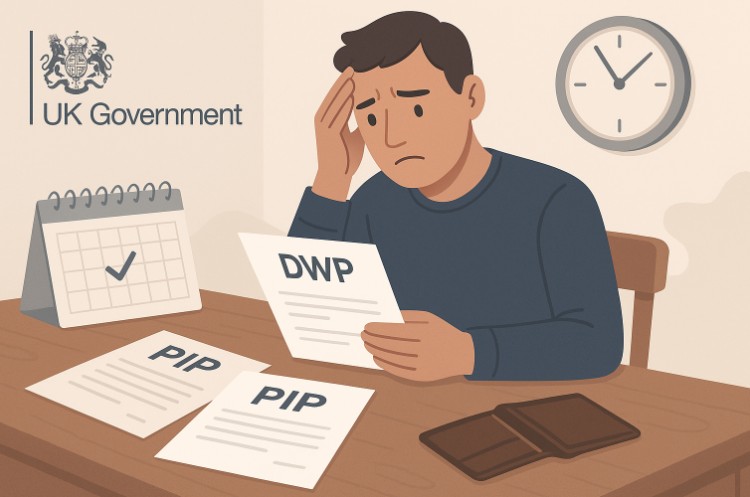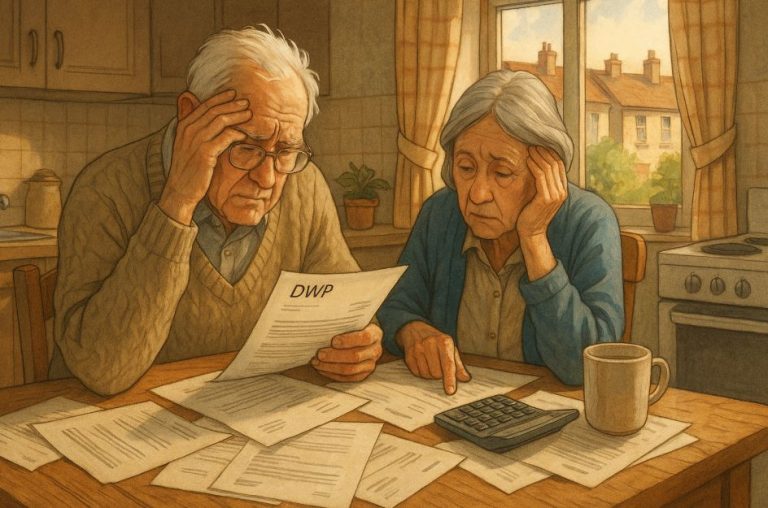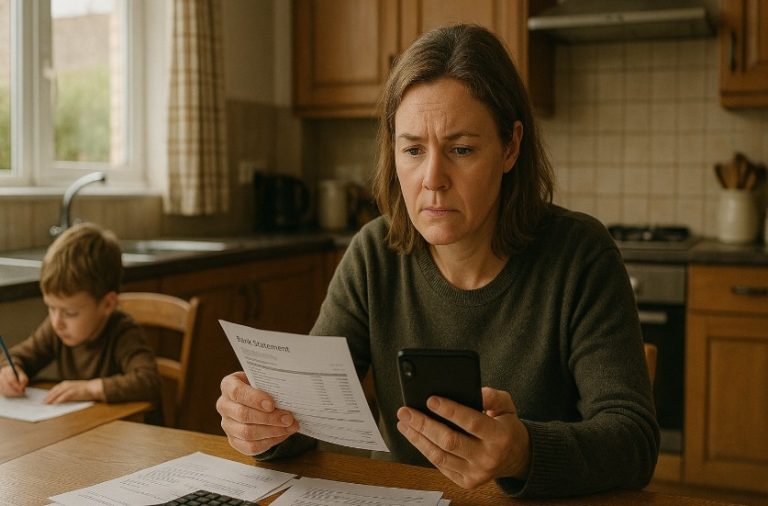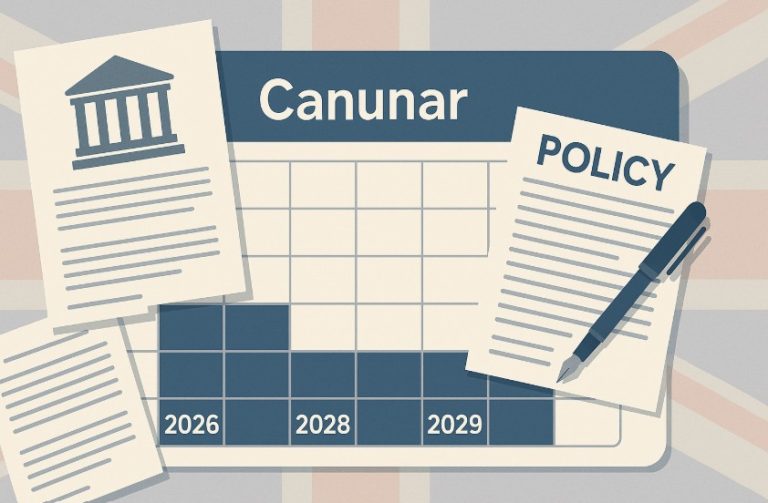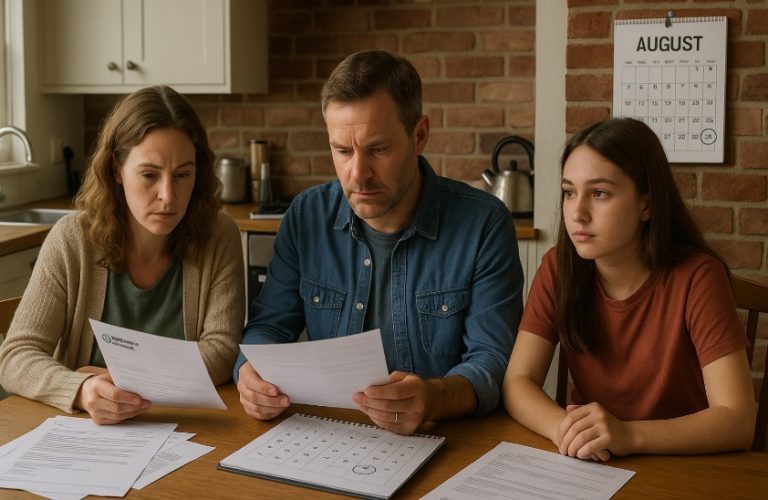Understanding how Personal Independence Payment (PIP) is paid can help claimants manage their finances more effectively.
With questions surrounding whether PIP is paid in arrears or in advance, it’s important to explore how the Department for Work and Pensions (DWP) structures these payments and what claimants should expect.
What is Personal Independence Payment (PIP)?
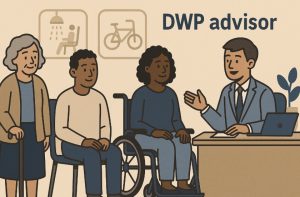
Personal Independence Payment (PIP) is a UK government benefit designed to help individuals aged 16 and over who are living with long-term health conditions or disabilities.
It provides financial assistance to help cover the additional costs associated with daily living and mobility challenges.
The benefit is managed by the Department for Work and Pensions (DWP). PIP is not means-tested or taxed, and eligibility is determined by how a condition affects a person’s ability to perform daily tasks, not by the specific medical condition.
PIP is made up of two components:
- The Daily Living Component
- The Mobility Component
Each component has two rates: standard and enhanced. A claimant may qualify for one or both components depending on the level of support they need.
How Does the PIP Payment System Work?
The DWP handles all PIP claims and payment processing. Payments are usually made every four weeks directly into a claimant’s chosen account, such as a bank or building society account.
Once a claim is approved, the DWP issues a decision letter explaining:
- The award (which components and at which rate)
- The payment schedule
- The date of the first payment
- Any backdated payments due
Claimants do not need to apply separately for payment arrangements; these are handled automatically as part of the claim process.
The payment dates are consistent unless a change of circumstances or a review alters the award.
Is PIP Paid in Arrears or in Advance?
PIP is paid in arrears, which means recipients receive payment for the previous four weeks rather than the upcoming four weeks. This approach aligns with how most benefits in the UK are administered.
For example, if someone’s claim was approved on the 1st of the month but payments are issued on the 28th, the first payment would cover the time from the 1st to the 28th. This ensures claimants are only paid for time during which they were eligible.
The arrears payment system helps the DWP verify ongoing eligibility and ensures that payments reflect actual entitlement periods.
When Will the First PIP Payment Arrive?
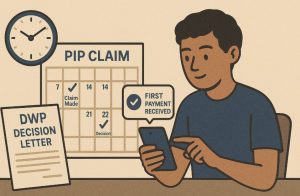
Understanding the timeline of your first PIP payment can help you plan your finances during a period that may already feel uncertain.
While the process is relatively standardised, the time it takes to receive your first payment depends on several key stages, each of which can influence the overall duration of the claim.
Average Timeline for First PIP Payment
Once you have submitted your PIP claim, the first payment does not arrive immediately. The average time from the initial application to receiving your first payment is approximately 8 to 12 weeks, although this can vary depending on individual circumstances, such as how quickly you return any forms, attend your assessment, and whether additional medical evidence is required.
The process includes multiple steps:
- Initial Claim Submission: You begin your claim by contacting the DWP and completing the relevant forms. After you return the “How your disability affects you” form, your claim is considered active.
- Assessment Phase: Most claimants are invited to a telephone or face-to-face assessment conducted by a health professional. This assessment evaluates how your condition affects your daily living and mobility.
- DWP Decision Making: Once the assessment report is submitted, the DWP makes a decision on your claim. This process can take a couple of weeks, depending on workloads and whether additional clarification is needed.
- Notification of Decision: You will receive a decision letter through the post, which outlines the outcome, the award (if any), and the payment details.
- First Payment Processing: If your claim is successful, the DWP usually issues your first payment within 7 to 14 days after the decision letter has been sent. This first payment will typically include any backdated amount owed from the date your claim started.
Factors That May Influence Timing
Several variables can impact how soon your first payment arrives:
- Delays in providing medical evidence can slow down the assessment.
- Missed or rescheduled assessment appointments will cause the process to restart.
- Changes in your condition or claim details during processing may require further review.
- High volumes of claims can also lead to longer decision times.
First Payment Includes Backdated Amount
It’s important to understand that PIP is paid in arrears. This means your first payment is not just for the current four-week period but will usually include a backdated sum that covers the time from when you made your initial claim to the date of the first payment.
Here is an example of a typical first payment timeline:
| Stage | Estimated Timeframe | Notes |
| Claim form submitted | Week 0 | Claim becomes active once the form is received by DWP |
| Assessment appointment | Week 4 to 6 | Can vary depending on availability |
| DWP makes decision | Week 6 to 10 | Letter sent with outcome and payment details |
| First payment received | Week 8 to 12 | Includes backdated payment from claim start date |
Receiving Payments
The DWP will deposit your first and future payments into your chosen account. Payment frequency is every four weeks, and you’ll be informed of your next payment date in the award letter.
Claimants should note that if the payment due date falls on a weekend or public holiday, the payment is usually made on the working day before.
If you have not received your first payment within two weeks of the decision letter, you should contact the PIP helpline to investigate any issues.
Can PIP Be Backdated or Paid in Arrears?
Yes, PIP can be backdated. If the DWP changes a decision after a mandatory reconsideration or appeal, payments are backdated to the date the original claim was made.
Circumstances Where PIP is Backdated:
- New Claims: Payments are backdated to the date the claim was first submitted, even if the decision comes later.
- Award Reviews: If an existing claim is reviewed and an increase is granted, the payment is backdated to the date of the review.
- Change in Circumstances: When a claimant reports a change that results in a higher entitlement, backdated payments apply from the date the change was reported.
These backdated payments are usually made as a lump sum. However, if the amount is particularly large, the DWP may offer to pay it in instalments to avoid financial mismanagement.
It is also important to note that a backdated PIP award can affect other benefits. For instance:
- The benefit cap may be lifted
- Housing benefit or Universal Credit payments may be recalculated
- Any previously reduced payments may be reimbursed
Keeping the PIP decision letter is essential as it provides proof of eligibility and may be required for related support services.
How Often Are PIP Payments Made?
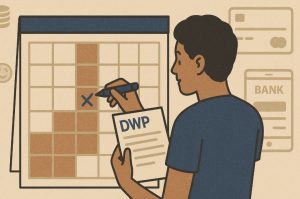
PIP is typically paid every four weeks. This payment cycle is standard and helps claimants plan their finances effectively. However, in exceptional cases, such as financial hardship, claimants can request more frequent payments. These requests are reviewed by the DWP on a case-by-case basis.
Payment dates are fixed based on the date the first payment was made. If a scheduled payment falls on a weekend or bank holiday, it is usually paid on the working day before.
Below is a table showing the typical PIP payment structure:
| Payment Type | Frequency | Paid In |
| Regular Payments | Every 4 weeks | Arrears |
| First Payment | After approval | Includes back pay |
| Backdated Amounts | Lump sum | If applicable |
Claimants should monitor their bank accounts and keep a record of their payment schedule to ensure they receive payments on time.
What Happens If There’s a Delay in PIP Payments?
Delays in receiving PIP payments can occur, particularly during busy periods or if further information is needed to complete an assessment. Some of the common reasons include:
- Incomplete or incorrect claim forms
- Delay in attending assessments
- Pending mandatory reconsideration or appeal outcomes
- Administrative processing backlog
If there is a delay, claimants should contact the DWP immediately to get clarification on the issue. It is helpful to have the following information ready:
- National Insurance number
- Claim reference number
- Recent correspondence from DWP
In cases of financial difficulty due to delays, claimants may be able to apply for a short-term benefit advance, depending on the situation and eligibility.
Are There Any Situations Where PIP Is Paid in Advance?
Although PIP is normally paid in arrears, there are rare situations where advance payments can be made. These are usually in the form of a short-term benefit advance and are meant to help claimants facing immediate financial hardship.
Eligibility for an advance payment depends on:
- Evidence of financial hardship
- An existing or pending PIP claim
- DWP’s assessment of the claimant’s ability to repay the advance
This type of advance is not a standard part of the PIP system and is offered at the DWP’s discretion. Claimants will need to repay it from future PIP payments, usually in instalments deducted automatically.
How Should Claimants Manage Their PIP Payments?
Managing PIP payments effectively is essential for covering daily living and mobility needs. Claimants are advised to:
- Keep track of their payment dates
- Plan budgets around the four-week cycle
- Retain DWP correspondence, including decision letters
- Notify the DWP promptly about any change in circumstances
In cases where claimants find it difficult to manage their payments or require financial guidance, they may seek help from the following sources:
- Citizens Advice
- Disability support organisations
- Local authority welfare support teams
Financial planning tools or budgeting apps may also help in maintaining control over regular benefit income and related expenses.
How to Contact DWP Regarding PIP Payment Issues?
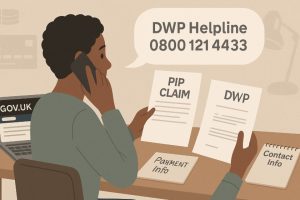
The Department for Work and Pensions can be contacted through various channels. If there is an issue with a payment or a delay, claimants are encouraged to reach out promptly.
Here is a summary of contact methods:
- Telephone: 0800 121 4433 (Weekdays, 9am–5pm)
- Textphone: 0800 121 4493
- Relay UK: Dial 18001 then 0800 121 4433
- Post: Use the postal address listed on your most recent PIP letter
When calling, claimants should be prepared with their National Insurance number and claim details to speed up the process.
What Do You Need to Know About PIP Payment Reviews?
PIP awards are not permanent and are subject to periodic reviews. These reviews assess whether a claimant’s condition has changed and whether the current award is still appropriate.
Types of reviews include:
- Scheduled Reviews: Occur at set intervals based on the initial award duration
- Unscheduled Reviews: Triggered by reported changes in health or daily function
- End of Award Reviews: Conducted before a fixed-term award expires
If a review results in an increased entitlement, the payment is backdated to the date the review was initiated. If the award is reduced or ended, payments will be adjusted accordingly.
Claimants should respond to review notices promptly and provide updated medical evidence if required.
Conclusion
Personal Independence Payment is paid in arrears, typically every four weeks, and may be backdated depending on when the claim was submitted or updated.
Understanding the payment system is essential for claimants to budget properly, track payments, and ensure they receive the financial support they are entitled to.
Claimants should regularly review their payment dates, communicate promptly with the DWP, and seek advice when necessary.
Knowing how the system works is the first step in taking full advantage of the support offered by PIP.
Frequently Asked Questions
How long does it take to get the first PIP payment after approval?
It usually takes 1 to 2 weeks after the DWP approves the claim for the first PIP payment to be processed and received.
Will I receive backdated PIP payments automatically?
Yes, backdated payments are typically processed automatically to the original claim date once the DWP makes a favourable decision.
Can PIP be paid weekly instead of every 4 weeks?
PIP is generally paid every four weeks. In exceptional circumstances, such as financial hardship, weekly payments may be arranged, but this is rare.
Do PIP payments stop if you go into hospital?
Yes, if a claimant stays in hospital for more than 28 days, PIP payments may stop temporarily. They resume upon discharge.
Is PIP affected by other benefits I receive?
PIP is a non-means-tested benefit and is not usually affected by other benefits. However, it can increase entitlement to other benefits like Universal Credit.
What if I think my PIP payment amount is incorrect?
Contact the DWP to request a review or clarification. If unsatisfied, a mandatory reconsideration can be requested.
How can I track or confirm my PIP payment schedule?
You can contact the PIP helpline for confirmation of payment dates or refer to your award letter and bank statements for a record of payments.


